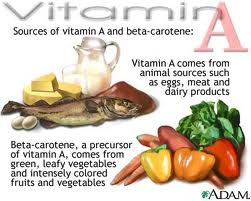- HubPages»
- Health»
- Women's Health»
- Pregnancy
Vitamin A and Pregnancy: The Risks of eating Liver when pregnant
Safe Foods containing Vitamin A

Liver and the Risks
Now before I start this let me specify, that you DO need vitamin A during pregnancy, as it helps keep your skin, eyes and immune system healthy, However your body stores it up and too much can be harmful to your unborn baby. You can get safe amounts through your normal intake of dairy products, meats other than live, oily fish, eggs and vegetables especially broccoli and carrots.
Now it is a common misconception that you can't have too many vitamins and minerals but too much of a good thing isn't always a good thing and this is definitely the case with Vitamin A and pregnancy. You should avoid Liver and any liver based products such as Pate and liver sausage as the levels of vitamin A are VERY high. So why is Vitamin A not good for my unborn Baby?
Retinol

A Video about the tetragenic effects of Vitamin A
Vitamin A and Pregnancy
Vitamin A has two main forms in foods which are:
-
Retinol, the form of vitamin A absorbed when eating animal food sources, is a yellow, fat-soluble substance. Since the pure alcohol form is unstable, the vitamin is found in tissues in a form of retinyl ester. It is also commercially produced and administered as esters such as retinyl acetate or palmitate.
-
The carotenes alpha-carotene, beta-carotene, gamma-carotene; and the xanthophyll beta-cryptoxanthin, but no other carotenoids, function as vitamin A in herbivores and omnivore animals, which possess the enzyme required to convert these compounds to retinal. In general, carnivores are poor converters of ionine-containing carotenoids, and pure carnivores such as cats and ferrets lack beta-carotene 15,15'-monooxygenase and cannot convert any carotenoids to retinal (resulting in none of the carotenoids being forms of vitamin A for these species).
So high levels of vitamin A, especially the Retinol variety, have been shown to store up in the fetus Liver when supply outstrips demand and this can lead to Vitamin A toxicity and has been shown to be teratogenic. The beta carotene type converts to the Retinol type, however the conversion rate decreases as the quantity increases meaning the beta-carotene is not a tetratogen
Vitamin A has been shown to affect the development of the central nervous system, which can lead to the death of the unborn child, it can also potentially lead to children later in life. It can also have a detrimental effect on the unborn babies respiratory system, impairing lung function especially in early development when the respiratory reflexes are still poor.
Due to the above it is strongly advised that you avoid eating liver and liver based products, as long as you eat enough vegetables you should get your dose of vitamin A.
The other thing to consider is vitamin supplements, you should only chose a supplement which is formulated specifically for pregnant woman, this will ensure that you are not receiving too much Vitamin A and if you are not 100% sure then consult a health professional. I hope this has cleared up a few of the myths surrounding Liver and why you shouldn't eat it. Below are some links to the latest research into the effects of vitamin A on unborn babies.
Further Reading
- Teratology Society Publications
A study by the Teratology Society on the effects of vitamin A on unborn babies, a very enlightening research paper. - Effect on Fetus from excess Vitamin A
A good article about the the effects of fetal exposure to vitamin A.



